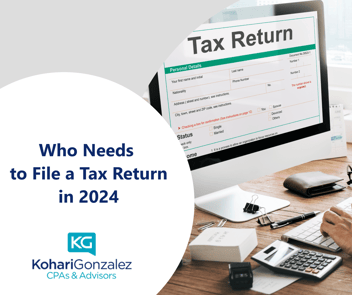 Article Highlights:
Article Highlights:
- Qualifications for Employees
- Employer Certification Process
- Tax Benefits for Employers
- Special Circumstance Benefits
- Fast-tracked Certification for Veterans
- Other Issues
A federal tax credit known as the Work Opportunity Tax Credit (WOTC) was created to incentivize firms to recruit members of specific groups who have continuously encountered major job hurdles. This program helps firms in two ways: it lowers unemployment rates for certain populations and provides significant tax benefits. This post will discuss the requirements that employees must meet in order to be eligible for the Work Opportunity Tax Credit (WOTC), the steps that employers must take in order to submit a claim for the credit, and the particular tax advantages that may be obtained.
Qualifications for Employees - For an employee to qualify their employer for the WOTC, they must belong to one of the following categories:
- Veterans include individuals who are jobless, have a service-related disability, or receive SNAP assistance.
- Long-Term Unemployment Recipients: Those who have been unemployed for 27 weeks or more and have received state or federal unemployment benefits throughout that period.
- SNAP (food stamp) Recipients - An individual who:
- Is at least age 18 but not yet age 40 on the hiring date, and
- Is a member of a family that-
- a. Has received SNAP benefits for the 6-month period ending on the hiring date or
- b. Is no longer eligible for such assistance under section 6(o) of the Food and Nutrition Act of 2008, but the family received SNAP benefits for at least 3 months of the 5-month period ending on the hiring date.
- Designated Community Residents - These are persons confirmed by the designated local agency as having reached the age of 18 but not yet 40 on the hiring date, as well as having their primary residence in an empowerment zone, enterprise zone, renewal community, or rural renewal county. compensation eligible for the WOTC do not include compensation received or incurred for services done when the individual's primary place of residence is outside an empowerment zone or rural renewal county.
- Vocational Rehabilitation Referrals - An individual with a physical or mental disability that significantly limits employment and was referred to the employer after completing (or while receiving) rehabilitation services from a state-approved rehabilitation agency, an employment network under the Ticket to Work program, or the Department of Veterans Affairs.
- Ex-felons - hired within a year of their conviction or release from prison.
- Supplemental Security Income (SSI) Recipients- An individual who receives supplemental security income benefits under title XVI of the Social Security Act (including benefits described in sections 1616 of the Social Security Act or section 212 of Public Law 93-66) for any month ending within the 60-day period ending on the hiring date.
- Summer Youth Employees - Employees who are 16 or 17 years old, have never worked for the business before, work from May 1 to September 15, and reside in an Empowerment Zone.
- Recipients of Temporary Assistance for Needy Families (TANF) must have received assistance for at least 9 months during the 18-month period ending on the hire date.
- Qualified Long-Term Family Assistance (TANF) recipients A eligible individual belongs to a family that:
- Has received temporary assistance for needy families (TANF) payments for at least 18 consecutive months ending on the hiring date, or
- Receives TANF payments for any 18 months (whether consecutive) beginning after August 5, 1997, and the earliest 18-month period beginning after August 5, 1997, ended during the past 2 years, or
- Stopped being eligible for TANF payments because federal or state law limits the maximum period such assistance is payable, and the individual is hired not more than 2 years after such eligibility ended.
Employer Certification Process - To claim the WOTC, businesses must first get verification that the employed individual belongs to a targeted category. This requires sending IRS Form 8850, "Pre-Screening Notice and Certification Request for the Work Opportunity Credit," to the state workforce agency within 28 days of the employee's start date. If the state workforce agency certifies the employee's eligibility, the employer may claim the tax credit.
Tax Benefits for Employers - The value of the WOTC varies depending on the targeted group to which the employee belongs and the number of hours they work. Generally, the credit is worth:
- 40% of the first $6,000 in wages paid to the employee if they work at least 400 hours.
- 25% of the first $6,000 in wages if the employee works at least 120 but fewer than 400 hours.
Special Circumstance Benefits
- Long-Term Family Assistance (TANF) Recipients - The first-year wages considered for this group is $10,000 with a maximum credit of $4,000 per employee. In addition, this group qualifies for second year credit equal to 50% of up to $10,000 of the second-year wages. A qualified individual is one who is a member of a family that:
- has been receiving funds from Temporary Assistance for Needy Families (TANF) for a minimum of 18 months running up to the hire date, or
- Receives TANF funds for any 18 months (whether consecutive) beginning after August 5, 1997, and the earliest 18-month period beginning after August 5, 1997 that concluded within the last two years, or
- Individuals are no longer eligible for TANF payments because federal or state legislation limits the maximum duration for which such aid is provided, and the individual is employed no more than two years after such eligibility expired.
- Veteran Who Has Been a Member of a Family Receiving Food Stamps for at Least Three Months - The individual has been a member of a family receiving food stamp assistance under the Food and Nutrition Act of 2008 for at least three months, all or part of which occurred during the 12-month period ending on the hiring date. The maximum qualified first-year pay is $6,000. Thus, the maximum WOTC is $2,400 (.4 times $6,000).
- Veteran is entitled to compensation for a service-connected disability. Hired within the first year after separation from service. The veteran must be eligible for compensation for a service-related disability and have a hiring date that is less than one year after being dismissed or relieved from active duty. The maximum qualified first-year pay is $12,000. Thus, the maximum WOTC is $4,800 (.4 times $12,000).
- Veteran Entitled to Compensation for a Service-Related Disability with Six Months of Unemployment in the Year Prior to the Hire Date - The veteran has had at least six months of unemployment in the one-year period ending on the hire date. The maximum eligible first-year pay is $24,000. Thus, the maximum WOTC is $9,600 (.4 times $24,000).
- Veteran had aggregate periods of unemployment exceeding four weeks in the year prior to the hire date - The veteran has had four or more weeks of unemployment during the one-year period ending on the hire date. The maximum qualified first-year pay is $6,000. Thus, the maximum WOTC is $2,400 (.4 times $6,000).
- Veteran had aggregate periods of unemployment exceeding six months in the year before the hire date. The veteran has had at least six months of unemployment in the year before the hire date. The maximum eligible first-year pay is $14,000. Thus, the maximum WOTC is $5,600 (.4 times $14,000).
Fast-tracked Certification for Veterans- A veteran shall be recognized as certified by the designated local agency as having aggregate periods of unemployment matching the standards if the local agency certifies him or her as receiving unemployment compensation under State or Federal law for
- Not less than six months during the 1-year period ending on the hiring date.
- Not less than four weeks(but less than six months) during the 1-year period ending on the hiring date.
Other Issues:
- Employees who are connected to the employer or to certain owners of the firm, or who are the employer's dependents, are not eligible for credit.
Wages used to compute the WOTC cannot be used to other credit computations.
- The credit is often not available for past workers, substitutes for employees on strike or locked out, or employees getting federally subsidized on-the-job training.
- This credit is part of the general business credit, and any credit not utilized in the current year is carried back one year and forward for 20 years.
- No credit is granted for salaries paid or spent in carrying on a cannabis (marijuana) company, even if the personnel employed are from the targeted categories.
While the WOTC provides considerable tax benefits, companies must balance these advantages with the administrative obligations of participation in the program. Employers should examine the possible impact on their hiring methods, the certification process for qualified personnel, and the integration of these people into their workforce.
Please contact this office for further information or to schedule a consultation to assess whether the WOTC is appropriate for your business.



